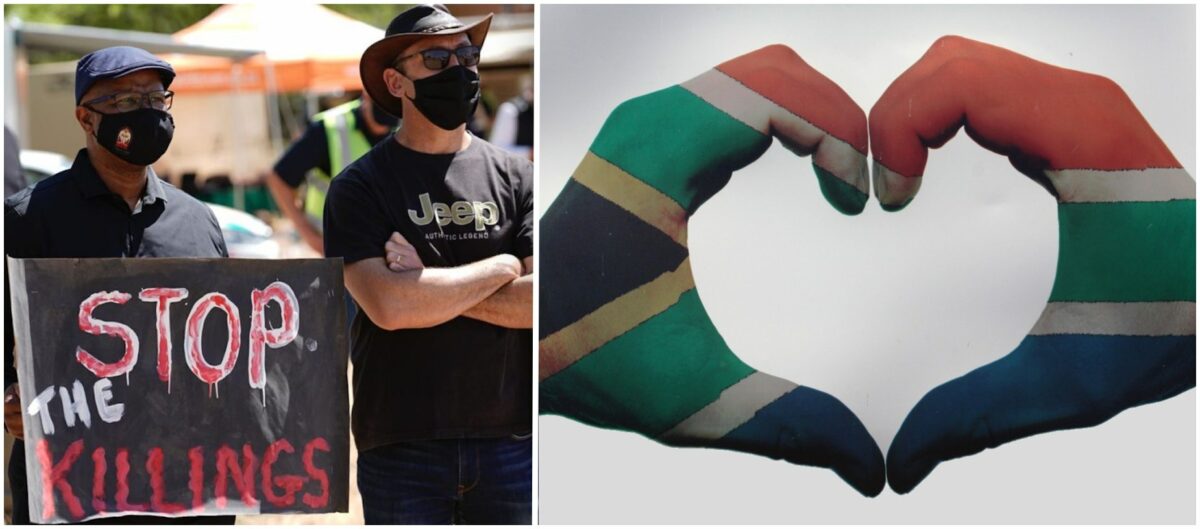Yesterday, 16 December, South Africa celebrated its Day of Reconciliation. This public holiday is a part of South Africa’s national heritage, signifying not only the end of apartheid, but the beginning of unity, reconciliation and healing.
The first Day of Reconciliation was in 1995, after the end of apartheid. The 16 December date was chosen by Nelson Mandela and the South African Truth and Reconciliation Commission as it has significance for both African and Afrikaner cultures.
With the detrimental effect of Covid-19, the State Capture Inquiry, corruption and increased poverty, crime and unemployment, it is a precarious time for South Africa – socially, economically and politically – and much of the population is left with little hope for their futures.
Democratic Alliance Leader, John Steenhuisen MP, issued the following statement
“Shun those who celebrate Reconciliation Day while driving wedges between us“
“Fellow South Africans
As we spend the 16th of December celebrating our national Day of Reconciliation, I want us to pause for a moment and think about what exactly it is we’re celebrating.
Few other countries in the world have culture, history or people as diverse as South Africa’s. We like to speak of this diversity as our strength – we don’t claim to want to blend everything and everyone together into an uniform mixture. Rather, we state that a sense of unity in our incredible diversity is far better and far stronger than bland sameness.
We claim to believe it so much that we’ve put it up there on our national Coat of Arms: Unity in Diversity. It’s in our Constitution too, right upfront in the preamble. “We, the people of South Africa… believe that South Africa belongs to all who live in it, united in our diversity.” But are we truly living up to that claim 26 years into our democracy?
It would seem that many of those who are meant to be leading us towards a better future as one, united South Africa don’t actually believe that this is necessarily the way forward. In recent years it is division rather than unity that has become the staple of a number of political parties, including the ANC.
When you listen to much of the language coming from the ruling party and its leaders, the words on the Coat of Arms are little more than an empty slogan.
In a party like the EFF, this drive to divide rather than unite has become its entire identity. They are obsessed with fanning race wars and creating a permanent state of distrust.
No gathering, no action and no campaign can be considered worthwhile if it does not deepen the fractures in society and pit South Africans against each other.
And on the opposite side of the political spectrum you will find parties equally eager to capitalise on any growing distrust and resentment.
The tense standoffs in places like Senekal and Brackenfell show just how easy it is to whip these feelings up and turn citizens against each other.
Any party that seeks out these flashpoints in society and tries to use them as wedges between us has no business plotting our country’s future. And yet you will see them out here today celebrating our Day of Reconciliation alongside everyone else. Don’t let them speak for you, because they do not have a united, reconciled South Africa in mind.
Any party that speaks of “us” and “them” does not have a united South Africa in mind. Any party that refers to “our people” when they don’t mean the whole country does not have a united South Africa in mind. These parties are driving a narrow agenda – a nationalist agenda – and that can never be in the interest of our country.
Our only hope, if we’re to rebuild our shattered economy and our fractured society, is as one people pursuing a common vision.
Because once we’ve retreated into our little lagers of race, culture or language we are of no use to each other. We have to learn to resist the language of blame, scapegoating and resentment. We have to see that as someone else’s agenda and not ours.
On this Day of Reconciliation, spend a little time thinking about what this means in our bright and diverse nation. Listen to the language others are using and ask yourself: Are they truly speaking of one nation pursuing one common future built around shared values?
Because I can assure you that’s the only future the DA has in mind – a strong and prosperous South Africa, united in its glorious diversity.”

